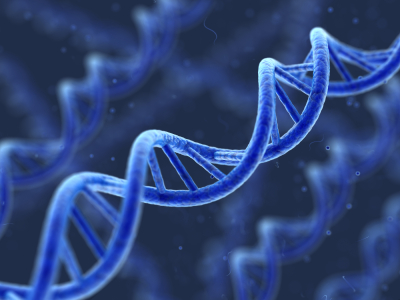Australian patients are using an American clinical pathology laboratory for their genetic testing needs
It’s a half-price sale of genetic clinical laboratory tests for 5,000 customers of Australian health insurer NIB. NIB wants to encourage its beneficiaries to screen themselves to identify their genetic tendencies for such conditions as heart disease, diabetes, some cancers, and other diseases with a known genetic component.
NIB has arranged for California-based Navigenics to conduct the genetic tests for a price of US $499. That’s a 50% discount from Navigenics’ usual retail price of US $999.

Mark Fitzgibbon, NIB CEO, says that the genetic information is intended to encourage customers to improve their health behaviors. Only the NIB customer and Navigenics will have access to the results of the genetic screening tests performed by Navigenics’ clinical laboratory.
Australian laws on community rating prevent health insurers from charging more based on health status, age or gender. “We have to charge the same premium to everybody irrespective of their age, their genes or whatever the case may be,” said Fitzgibbon.
Despite the protections against discrimination in health insurance, no such protection exists for life and disability insurance customers. Some critics point out that those insurers, including NIB (which sells life insurance as well as health insurance), might use the information from these genetic pathology tests to set premium rates for individuals or even to deny coverage.
In an interview on Australian television, Fitzgibbon said that he had participated in this program by ordering these genetic tests on himself. He learned that he had a genetic pre-disposition to prostate cancer. “And I went [to the doctor] and had a check. I probably wouldn’t have had that check if not for that [genetic screening] test,” he said.
In the U.S., the Genetic Information Nondiscrimination Act of 2008 bars health insurance companies and employers from discriminating against individuals based on genetic differences. Just as in Australia, though, there is no law in the United States that bars other types of insurers from using genetic information to set rates or deny coverage.
Some Australian geneticists expressed concern over the usefulness of the genetic tests being offered by Navigenics. They also decried the fact that primary care doctors are not involved in the testing. Associate Professor Kristine Barlow-Stewart from the New South Wales Centre for Genetic Education observed, “We’re not sure, even as experts, of the reliability of the interpretation of the [genetic] data that comes out. The risks that are given to you, there are still some questions as to whether we can really understand what that means. I think it is far too early for these [genetic] tests to be given in such a way.”
Fitzgibbon defends the genetic tests. He notes that NIB encourages customers to take their results to their general practitioners and discuss any health implications identified from the genetic testing. He said that he immediately took his genetic test results to his general practitioner.
“I believe with all my heart that in 10 years every general practitioner in the country will have this type of information at their disposal to assist them in making better decisions,” he says. “So, it’s additional information, it’s better information about our health status compared to what we have at the moment.”
Fitzgibbon says that NIB offered the 50% discount on genetic testing in hopes that people might be motivated to improve their health habits and take advantage of health screenings that they might otherwise skip. By helping customers better manage their health risks, he says, NIB hopes to improve customers’ health and reduce benefit costs.
Dark Daily observes that there are several interesting insights about these developments. First, here is an example of a private health insurer in a developed health system encouraging its beneficiaries to use genetic tests to better understand their risk for various cancers and health conditions. This demonstrates how certain health organizations are likely to support more direct consumer involvement in their healthcare, including use of clinical laboratory tests.
Second, this “half-off” sale of genetic testing in Australia is utilizing the clinical laboratory testing services of Navigenics, a company based in the United States. Here is a significant example of how healthcare—and pathology testing—is going global. This opportunity exists because it is easy to move clinical laboratory test specimens across international boundaries. The genetic laboratory testing program between Australia-based NIB and U.S.-based Navigenics confirms that capability. —K. Branz
Related Information:
Genetic test offer raises discrimination fears




thank you lots, I am obliged to announce that your blog is excellent!